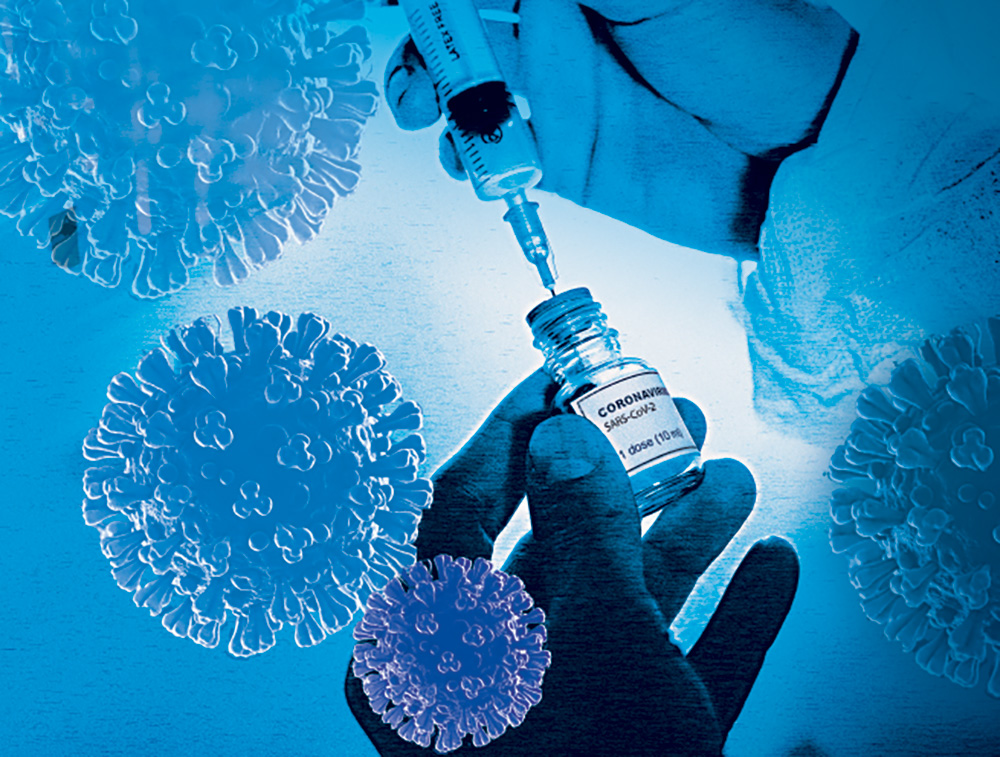Pfizer and BioNTech are promising to defend themselves from a lawsuit filed Friday by Moderna accusing the two companies of infringing on its patents for foundational messenger RNA (mRNA) technology in developing their blockbuster COVID-19 vaccine Comirnaty®.
“Pfizer/BioNTech has not yet fully reviewed the complaint but we are surprised by the litigation given the Pfizer/BioNTech COVID-19 vaccine was based on BioNTech’s proprietary mRNA technology and developed by both BioNTech and Pfizer,” Pfizer and BioNTech said in a statement to GEN and other news outlets.
“We remain confident in our intellectual property supporting the Pfizer/BioNTech vaccine and will vigorously defend against the allegations of the lawsuit,” Pfizer and BioNTech added.
BioNTech later issued a separate statement contending: “BioNTech’s work is original, and we will vigorously defend against all allegations of patent infringement. BioNTech also values and respects valid and enforceable intellectual property rights of others and remains confident in its intellectual property.”
Moderna filed its lawsuit in both U.S. District Court for the District of Massachusetts (Moderna v. Pfizer, 22-cv-11378) and the Regional Court of Düsseldorf, Germany.
In its 39-page complaint, Moderna contended that Pfizer and BioNTech have infringed upon three mRNA patents issued between 2011—a year after Moderna was founded in Cambridge, MA, to commercialize mRNA drugs and vaccines—and 2016.
The patents are:
- No. 10,898,574, Delivery and formulation of engineered nucleic acids.
- No. 10,702,600, Betacoronavirus mRNA vaccine
- No. 10,933,127, Betacoronavirus mRNA vaccine
“This foundational platform, which we began building in 2010, along with our patented work on coronaviruses in 2015 and 2016, enabled us to produce a safe and highly effective COVID-19 vaccine in record time after the pandemic struck,” Moderna CEO Stéphane Bancel said in a statement. “We are filing these lawsuits to protect the innovative mRNA technology platform that we pioneered, invested billions of dollars in creating, and patented during the decade preceding the COVID-19 pandemic.”
Chemical modification, encoding challenged
In its lawsuit, Moderna faulted Pfizer and BioNTech for proceeding with a vaccine it asserted has the same exact mRNA chemical modification to its vaccine as its Spikevax® rather than any of three other vaccine candidates, including candidates that would have avoided potential infringement.
“Moderna scientists began developing this chemical modification that avoids provoking an undesirable immune response when mRNA is introduced into the body in 2010 and were the first to validate it in human trials in 2015,” Moderna stated in its announcement of the litigation.
The chemical modification was one of two key features that according to Moderna have been copied by Pfizer and BioNTech. The other is Moderna’s approach to encode for the full-length spike protein in a lipid nanoparticle formulation for a coronavirus. Moderna said its scientists developed this approach when they created a vaccine for the coronavirus that causes Middle East Respiratory Syndrome (MERS), years before COVID-19 emerged.
Jefferies analyst Michael Yee and colleagues estimated in an investor note today that the financial impact of a patent infringement decision to Pfizer and Biotech would be “modest.”
“We est(imate) for example a range that would include perhaps ~$300M/yr or less given no damages requested before March 2022,” Yee and colleagues projected, before cautioning: “Any developments or final judgments could likely take years to see outcomes, and actual COVID-related sales in the future would be smaller during an endemic period than the recent pandemic period.”
“Our view is COVID sales can be a stream of $5B+ annually vs $21B for 2022 even w/ a 50%+ reduction in jabs but offset by 1–2x commercial pricing in USA vs pandemic pricing,” the Jefferies analysts added.
In October 2020, Moderna promised not to enforce its COVID-19 related patents while the pandemic raged, as part of a commitment to equitable global access.
But in March of this year, Moderna said it expected Pfizer/BioNTech and other vaccine developers to respect its intellectual property rights and would consider a “commercially reasonable” license should they request one for other markets—something Pfizer and BioNTech have not done. Moderna also promised to never enforce its patents for any COVID-19 vaccine used in the 92 low- and middle-income countries in the GAVI COVAX Advance Market Commitment (AMC 92).
Also not being enforced by Moderna, it added, are any patent rights based on intellectual property generated during the company’s COVID-19 collaboration with the NIH, because that partnership began after the patented technologies at issue proved successful in clinical trials in 2015 and 2016.
“Moderna embodies the American ethos of innovation,” the company declared in its court complaint. “Its founders are scientists who challenged the status quo and took a chance on developing this unproven technology to treat and prevent some of the deadliest diseases and medical conditions. They came together to create Moderna, a name created from combining ‘modified’ and ‘RNA.’ Throughout its history, Moderna has prioritized science above all else, with a focus on helping patients who do not have other options.”


